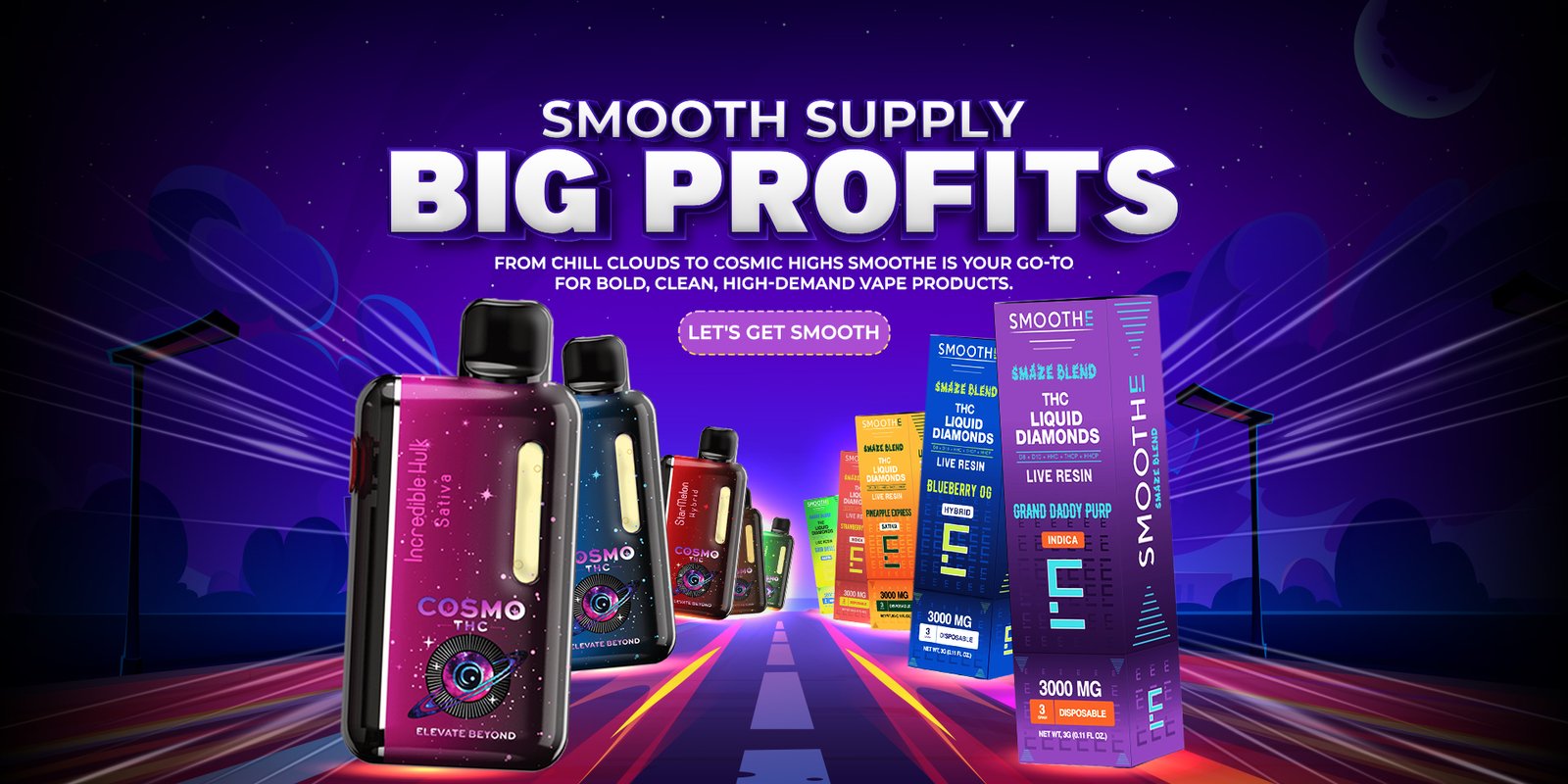The hemp‑derived cannabinoid space is booming, but one phrase is echoing louder than ever across supplement aisles and wellness clinics: “clean‑label.” Consumers want fewer mystery ingredients, transparent sourcing, and science‑backed benefits. If you’re sourcing Delta 8 wholesale for functional foods, tinctures, or topicals, the challenge is clear—marry large‑scale purchasing power with uncompromising purity. In this deep‑dive (≈1,350 words), we’ll explore how wholesalers, formulators, and health‑forward brands can accelerate from bulk barrels to boutique‑worthy, clean‑label products—all while staying compliant and sustainable.
1. Why Clean‑Label Matters in the Delta 8 Era
“Clean‑label” originally meant recognizable pantry ingredients—think “flour, water, salt.” In cannabinoid wellness, the stakes are higher:
- Safety: Consumers inhale, ingest, or apply extracts directly to skin. Residual solvents or undisclosed fillers pose real risks.
- Regulatory Scrutiny: The FDA and state authorities are zeroing in on mis‑labeled products, especially those making health claims.
- Brand Trust: Social media empowers customers to shame or praise. A single COA (Certificate of Analysis) leak can tank a brand overnight.
Key Stat: A 2024 NielsenIQ survey found that 68 percent of U.S. supplement shoppers would pay at least 15 percent more for a product marketed as clean‑label and third‑party tested.
2. Mapping the Delta 8 Wholesale Supply Chain
Understanding how bulk distillate becomes a shelf‑ready gummy illuminates every potential point of contamination—or quality excellence.
- Cultivation & Harvest
- Organic, pesticide‑free hemp reduces downstream remediation.
- Extraction (often CO₂ or ethanol)
- Food‑grade ethanol at sub‑zero temps preserves minor cannabinoids and removes chlorophyll.
- Isomerization to Delta 8 THC
- CBD is chemically converted to Δ‑8 via acid‑catalyzed reactions; impurities here can create unknown byproducts.
- Distillation & Remediation
- Wiped‑film distillation concentrates Δ‑8; chromatography removes heavy metals, mycotoxins, and Δ‑9 THC to legal limits (<0.3%).
- Wholesale Drums or Liters
- At this stage, buyers must demand full‑panel COAs (potency, terpenes, residual solvents, pesticides, heavy metals, microbials).
- Product Manufacturing
- Gummies, tinctures, softgels, vapes, or topicals. Formulators add carriers, flavors, and functional ingredients.
A clean‑label ethos must pervade every step, not just the last mile.
3. Setting a Gold Standard: What to Demand from Delta 8 Wholesale Vendors
A. Comprehensive Third‑Party Testing
- Potency: Δ‑8, Δ‑9, CBD, CBN, CBC, etc.
- Contaminants: Heavy metals, pesticides, residual solvents, microbial counts, mycotoxins.
- Terpene Profile: Confirms botanical origin and provides marketing angles (“limonene‑rich for mood support”).
B. Transparent SOPs (Standard Operating Procedures)
Ask for documentation on:
- Solvent sourcing (USP‑grade ethanol vs. industrial).
- Reaction catalysts used in isomerization—toluene sulfonic acid vs. food‑safe citric acid.
- Waste‑water disposal protocols.
C. GMP or ISO Certification
Facilities following cGMP (current Good Manufacturing Practices) reduce cross‑contamination risk and ensure batch consistency—must‑haves for medical or naturopathic channels.
4. Formulation Tactics: Turning Bulk Delta 8 into Clean‑Label Stars
4.1 Carrier Oils & Bases
| Carrier | Clean‑Label Score | Benefits | Watch‑Outs |
|---|---|---|---|
| Organic MCT Oil | ★★★★★ | Keto‑friendly, rapid absorption | Source palm‑free (coconut‑only) to minimize deforestation concerns |
| Hemp Seed Oil | ★★★★☆ | “Whole‑plant” marketing, omega‑3/6 | Shorter shelf‑life, stronger flavor |
| Olive Oil | ★★★★☆ | Mediterranean health halo | Clouding at fridge temps |
4.2 Natural Sweeteners & Flavors for Gummies
- Pectin vs. Gelatin: Plant‑based pectin aligns with vegan labels; requires lower pH and higher sugar—balance needed.
- Monk Fruit & Allulose: Low‑glycemic alternatives to cane sugar; avoid erythritol if targeting cardio‑health audiences.
- Real‑Fruit Powders: Enable “Strawberry Fields” flavor without artificial dyes.
4.3 Functional Add‑Ins
- Adaptogens (Ashwagandha, Rhodiola)
Synergize with Δ‑8’s anxiolytic properties for stress‑support SKUs. - Minor Cannabinoids (CBG, CBN)
“Broad‑spectrum” positioning bolsters entourage‑effect claims. - Terpene Re‑Introduction
Steam‑distilled botanical terpenes can replace synthetic flavors while enhancing effect profiles.
5. Regulatory Landscape: Navigating Compliance Without Diluting Clean‑Label Integrity
A. Federal Patchwork
While the 2018 Farm Bill legalized hemp derivatives under 0.3 percent Δ‑9 THC, the DEA’s 2020 IFR (Interim Final Rule) hinted that synthetic conversions might be Schedule I. Most states now employ their own rules—some banning Δ‑8 entirely.
Action Steps:
- Legal Counsel Review: Engage attorneys specializing in cannabinoid regulation before finalizing wholesale contracts.
- QR‑Code Labels: Link directly to batch‑specific COAs; some states (e.g., Utah, Kentucky) require this.
- Age‑Gating Online Sales: Even if Δ‑8 is federally legal, FTC can penalize misleading ad practices around minors.
B. Health‑Claim Limitations
Avoid statements like “cures anxiety” or “prevents cancer.” Use structure‑function claims instead:
“Supports a calm mood,” or “Helps maintain healthy stress levels.”
6. Sustainability and Social Responsibility: Add Layers to Your Clean‑Label Story
- Regenerative Hemp Farming
Carbon‑negative hemp cropping fixes soil and sequesters CO₂—highlight in marketing material. - Reusable or Compostable Packaging
PLA (polylactic acid) gummy jars can compost industrially; pair with recycled‑paper labels using soy inks. - Fair‑Wage Supply Chains
Showcase partnerships with family farms; traceability apps (e.g., Sourcemap) let consumers scan QR codes for farm data.
7. Case Study: A Supplement Brand’s Journey from Bulk Delta 8 to Whole‑Foods Shelves
Company: Zenith Botanicals
Goal: Launch a vegan Δ‑8 gummy for stress relief, compliant with Colorado regs.
| Phase | Hurdle | Clean‑Label Solution |
|---|---|---|
| Sourcing | Inconsistent Δ‑8 potency in drums | Switched to a wholesale vendor with ISO 17025‑accredited lab reports |
| Formulation | Gelatin excluded vegan market | Adopted citrus‑pectin, added tapioca syrup for elasticity |
| Flavor | Natural colors faded | Integrated beet‑juice powder + 0.1% turmeric for color stability |
| Packaging | Plastic jars clashed with eco branding | Shifted to glass jars with compostable seals |
| Retail Acceptance | Whole‑Foods required glyphosate‑free proof | Secured third‑party herbicide test panel |
Result: Product launched Q1 2025, sold out within four weeks, and earned a “Clean Choice Award” in Nutrition Insider magazine.
8. Future Trends: What’s Next for Delta 8 Wholesale and Clean‑Label Wellness?
- Nano‑Emulsified Δ‑8
Boosts bioavailability by 3–5×; water‑dispersible for beverages. Look for vendors offering clean, non‑PEG emulsifiers (e.g., sunflower lecithin). - AI‑Driven Quality Control
Computer‑vision spectrometry at extraction facilities will detect contaminants in real time—cutting costs, improving purity. - Minor‑Cannabinoid “Super Blends”
Wholesale bundles of Δ‑8 with CBC or THCV to tailor effect profiles (focus, appetite control) while leveraging a single clean‑label base. - Carbon‑Neutral Certifications
Retailers may soon demand ESG (Environmental, Social, Governance) audits—start tracking your footprint now.
9. Action Checklist: Crafting Your Own Clean‑Label Delta 8 Product Line
| Step | Task | Deadline |
|---|---|---|
| 1 | Shortlist Δ‑8 wholesalers with ISO or GMP credentials | Week 1 |
| 2 | Request full‑panel COAs + SOPs | Week 2 |
| 3 | Conduct pilot formulations (carrier oil, sweetener, flavor) | Weeks 3–4 |
| 4 | Third‑party stability & microbial testing | Week 5 |
| 5 | Design clean‑label packaging with QR‑linked COAs | Week 6 |
| 6 | Legal review of label claims & state compliance | Week 7 |
| 7 | Soft‑launch to email subscribers for feedback | Week 8 |
| 8 | Iterate, scale order quantities, negotiate wholesale pricing | Week 9 |
| 9 | National retail pitch with sustainability story | Week 10 |
Conclusion: Wholesale Volume, Boutique Integrity
Sourcing Delta 8 THC wholesale doesn’t have to mean compromising on holistic health standards. By demanding rigorous testing, choosing clean carriers, and weaving sustainability into your origin story, you can transform industrial‑scale cannabinoids into consumer‑grade wellness treasures. As regulations tighten and shoppers scrutinize every label, the brands that will thrive are those who treat “clean‑label” as a non‑negotiable, from soil to shelf.
Armed with the frameworks and checklists above, you’re ready to craft Δ‑8 products that satisfy retail buyers, withstand regulatory audits, and—most importantly—support the well‑being of the people who trust you with their health journey.




